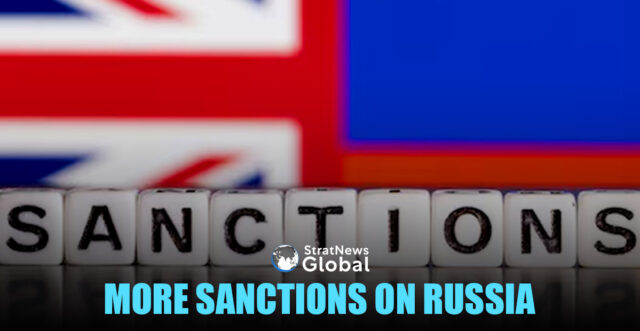The United Kingdom (UK) on Tuesday unveiled sweeping new sanctions against Russia’s military, energy, and financial sectors, increasing pressure on Moscow alongside parallel measures from the European Union (EU).
Britain said the sanctions against 100 new targets follow Russian drone attacks over the weekend against Ukrainian cities, the biggest drone onslaught of the war.
The new measures target the supply chains of Russian weapons systems, including Iskander missiles, Kremlin-funded information operations and financial institutions that help Russia evade sanctions, Britain said.
“We urge (Russian President Vladimir Putin) to agree a full, unconditional ceasefire right away so there can be talks on a just and lasting peace,” foreign minister David Lammy said.
“We have been clear that delaying peace efforts will only redouble our resolve to help Ukraine defend itself and use our sanctions to restrict Putin’s war machine.”
British Prime Minister Keir Starmer and leaders of major EU countries have jointly called for Washington to join them in imposing tougher sanctions against Russia for rejecting a ceasefire in Ukraine. U.S. President Donald Trump held a phone call with Putin on Monday that ended with no ceasefire deal.
New UK Sanctions
The new British sanctions target all levels of a group called the Social Design Agency, previously sanctioned in 2024, which London has described as a Russian disinformation body that tried to incite protests in European countries.
Forty-six financial institutions that London said help Russia circumvent sanctions were also hit, including the St. Petersburg Currency Exchange and the Russian Deposit Insurance Agency, which insures Russian banks.
Eighteen more vessels were added to the sanctions list, described as part of Russia’s “shadow fleet” of ships used to bypass Western restrictions and maintain Russian crude exports.
Individuals associated with this fleet were also hit, including a British national the government said had procured ships and two Russian captains of shadow fleet tankers.
Britain said it was also working with international partners to lower a $60 per barrel oil price cap that limits the price Russia can charge for its oil when transported using services such as insurance and shipping from major industrial countries.
(With inputs from Reuters)





